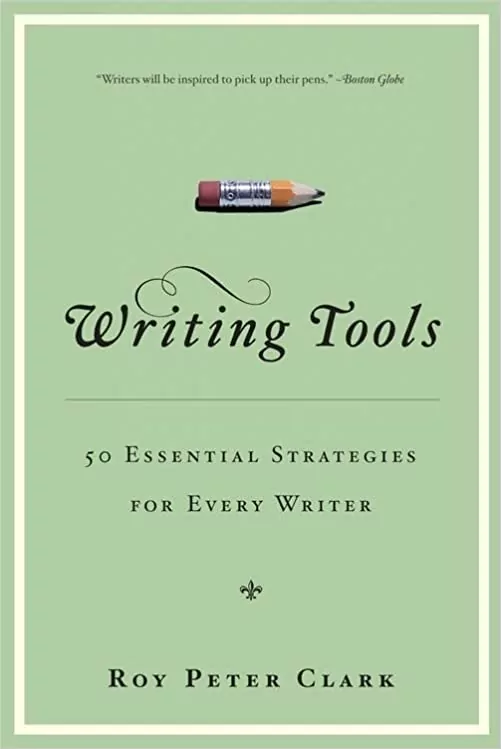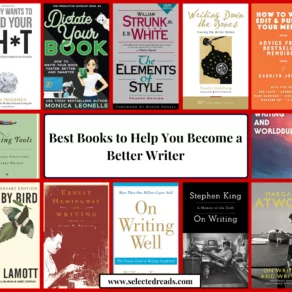“Writing Tools: 50 Essential Strategies for Every Writer” by Roy Peter Clark is a great guide to help you improve your writing skills. I recommend it for graduate students as well as anyone else who wants to take their writing experience to the next level.
The book is organized into four sections: “Nuts and Bolts,” “Special Effects,” “Blueprints for Stories,” and “Useful Habits.” Each section delves into specific aspects of writing, providing practical advice and techniques for improving one’s craft. The new edition of the book includes five brand new, never-before-shared tools, making it an even more valuable resource for writers.
“Nuts and Bolts” focuses on the fundamentals of writing, such as grammar, punctuation, and word choice. Clark provides essential guidance on how to construct clear and compelling sentences, choose the right words, and avoid common mistakes. He emphasizes the importance of understanding and mastering these foundational elements to become a more effective writer.
“Special Effects” explores the more artistic and creative aspects of writing. Clark offers techniques for adding style, voice, and flair to one’s work, such as using similes and metaphors, varying sentence structure, and employing dialogue. He also shares strategies for creating vivid descriptions and capturing the reader’s attention through powerful imagery and storytelling.
“Blueprints for Stories” delves into the structure and organization of various types of writing, from essays and articles to short stories and novels. Clark provides guidance on how to develop compelling narratives, create engaging characters, and weave together different story elements. He also discusses the importance of understanding genre conventions and audience expectations in order to create a satisfying reading experience.
“Useful Habits” focuses on the habits and practices that contribute to a successful writing life. Clark shares tips on how to establish a regular writing routine, overcome writer’s block, and develop the discipline and persistence necessary to succeed in the competitive world of writing. He also discusses the importance of reading widely, seeking feedback, and continuously honing one’s craft.
Throughout the book, Clark includes more than 200 examples from journalism and literature to illustrate his points and demonstrate the effectiveness of the tools he shares. Accessible, entertaining, and inspiring, “Writing Tools” is a valuable resource for writers of all levels, from high school students to novelists.
Main takeaways from the book
Here are some of the main takeaways from “Writing Tools: 50 Essential Strategies for Every Writer” by Roy Peter Clark are:
1. Master the fundamentals: A strong foundation in grammar, punctuation, and word choice is essential for effective writing. Understand the rules and apply them consistently to construct clear and compelling sentences.
2. Embrace creativity: Utilize creative techniques such as similes, metaphors, and varied sentence structures to add style, voice, and flair to your writing. Engaging your reader’s imagination through vivid descriptions and storytelling is crucial.
3. Understand structure and organization: Develop a solid grasp of how different types of writing are structured, from essays to novels. Focus on creating compelling narratives, engaging characters, and weaving together story elements in a coherent and satisfying way.
4. Know your audience and genre: Recognize the expectations of your audience and the conventions of your chosen genre. Tailor your writing to meet these expectations, while also finding ways to stand out and make your work unique.
5. Develop useful habits: Establish a regular writing routine, overcome writer’s block, and cultivate discipline and persistence to succeed in your writing career. Continuously hone your craft through practice and learning from feedback.
6. Learn from examples: Study a wide range of examples from journalism and literature to understand how successful writers employ the tools and techniques discussed in the book. This will help you recognize patterns and better apply them to your own work.
7. Read widely: Immerse yourself in various genres and styles to expand your understanding of writing techniques and possibilities. Reading will not only fuel your creativity but also help you develop a discerning eye for quality writing.
8. Seek feedback and be open to critique: Share your work with others and actively seek feedback to improve your writing. Embrace constructive criticism and use it as a means to grow as a writer.
in summary, Writing Tools: 50 Essential Strategies for Every Writer by Roy Peter Clark is an invaluable resource for writers at all levels. It provides a wealth of knowledge on the fundamentals of writing, as well as techniques to craft compelling narratives and engage readers.
I hope you find this summary of Writing Tools helpful and inspiring. Enjoy your selected reads.




